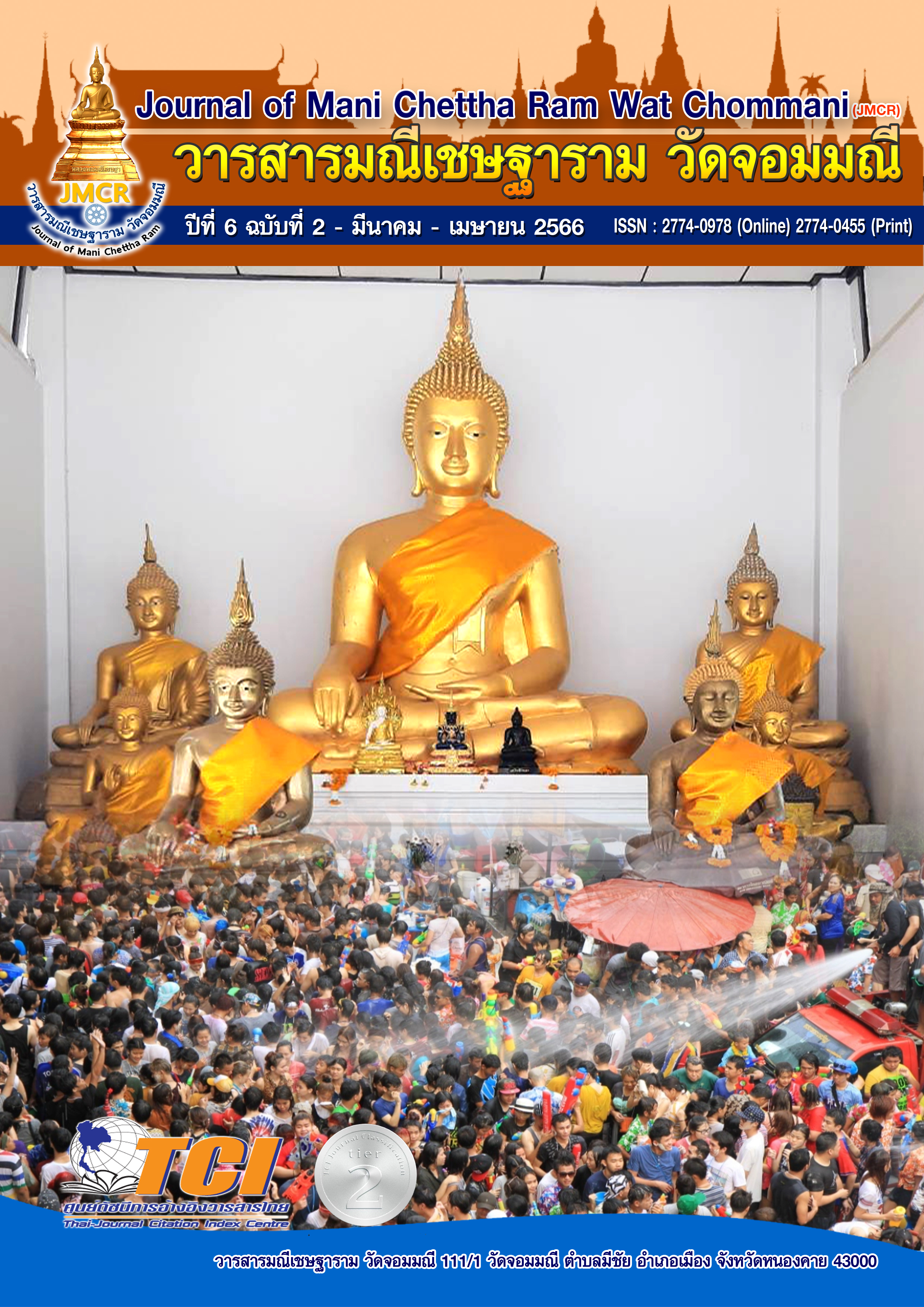THE PROTECTION OF DISCIPLINE MISCONDUCT ACCORDING TO HIRI-OTTAPPA PRINCIPLE OF NAKHON SI THAMMARAT YOUTH CORRECTION INSTITUTION
Keywords:
Protection, Misconduct, Hiri - OttappaAbstract
The objectives of this research were as follows 1) to study the prevention of discipline misconduct according to Hiri-Ottappa principle of Nakhon Si Thammarat Youth Correction Institution and 2) to find out the guidelines for Promotion of prevention of the discipline misconduct according to Hiri-Ottappa principle of Nakhon Si Thammarat Youth Correction Institution. Conducting research according to mixed method research: Quantitative research from 1,753 people the data collected by questionnaire, and 313 samples using by Kreicle and Morgan's tables, qualitative research collected data by in-depth interviews and group discussions by the key informants, five informants, data analysis using the Content analysis technique.
The results of the research found that: 1) The prevention of discipline misconduct according to Hiri-Ottappa principle of Nakhon Si Thammarat youth correction institution overall was 2.94. When considered individually, it was found that the aspect of Hiri was 3.10 and followed by the aspect of Ottappa was 3.05 2) From in-depth interviews, it was found that Hiri causes people to be ashamed of their hearts, not thinking bad things, saying bad things, and doing bad things both in front of and behind other people's backs. because there is shame for the sin that will happen until being able to win his own heart, stop evil, in line with Ottappa, if we do something If it's not right, it will make you feel afraid and embarrassed in your heart, called wrong from the dharma. This shame and fear is the cause of doing good deeds.
References
กวีวรญาณ, พระ. (2502). วิชาศานา. กรุงเทพมหานคร : ส. ธรรมภักดี.
กรมราชทัณฑ์. (2565). ภารกิจและอำนาจหน้าที่ของกรมราชทัณฑ์. เรียกใช้เมื่อ 20 สิงหาคม 2565 จาก http://www.correct.go.th.
กรมราชทัณฑ์. (2560). พระราชบัญญัติราชทัณฑ์ พ.ศ. 2560. เรียกใช้เมื่อ 22 สิงหาคม 2565.จาก http://www.correct.go.th/popmaha/image/Law%202560%20.pdf.
ชลลดา สอนศิริ. (2559). ความมีวินัยและแนวทางการเสริมสร้างความมีวินัยในตนเองของนักเรียนโรงเรียนวัดหนองขาม (ไตรราษฎร์อำรุง) สังกัดสำนักงานเขตพื้นที่การศึกษาประถมศึกษาชลบุรีเขต 3. ใน วิทยานิพนธ์ปริญญาการศึกษามหาบัณฑิต สาขาวิชาการบริหารการศึกษา. มหาวิทยาลัยบูรพา.
วิชัย ตันศิริ. (2551). อุดมการณ์ทางการศึกษา. พิมพ์ครั้งที่ 2. กรุงเทพมหานคร : ห้างหุ้นส่วนจำกัด สามลดา.
ส่งศรี ชมภูวงศ์. (2554). ระเบียบวิธีวิจัยทางสังคมศาสตร์. นครศรีธรรมราช: มหาวิทยาลัยมหามกุฏราชวิทยาลัย.
สมเด็จพระสังฆราชเจ้า กรมหลวงวชิรญาณวงศ์. (2531). สารานุกรมพระพุทธศาสนา.กรุงเทพมหานคร : จุฬาลงกรณ์ราชวิทยาลัย.
สำนักงานคณะกรรมการการศึกษาแหงชาติ. (2545). การดําเนินงานตามยุทธศาสตรปฏิรูปการศึกษา. กรุงเทพมหานคร : โรงพิมพองคการรับส่งสินค้าและพัสดุภัณฑ์.




